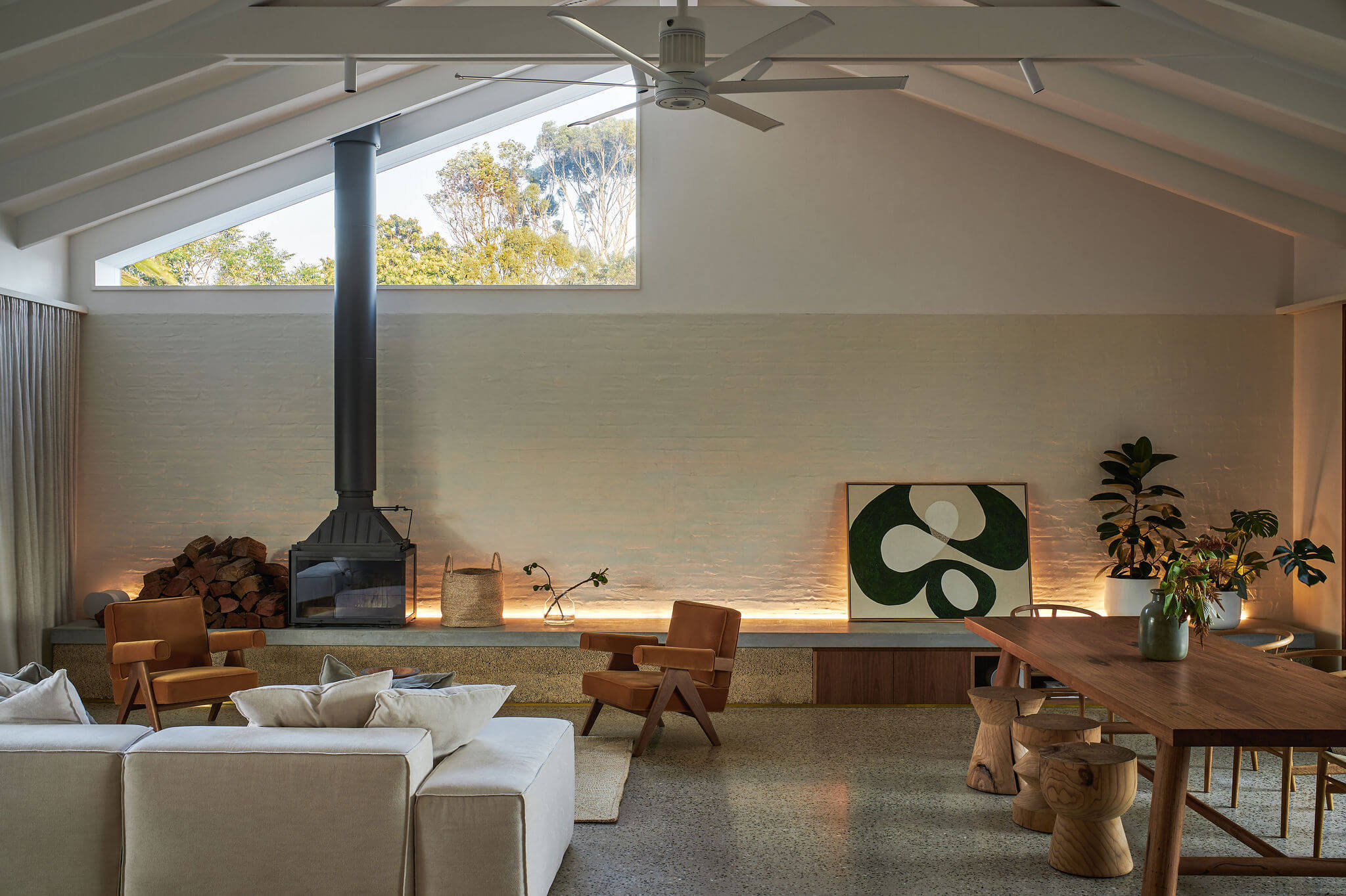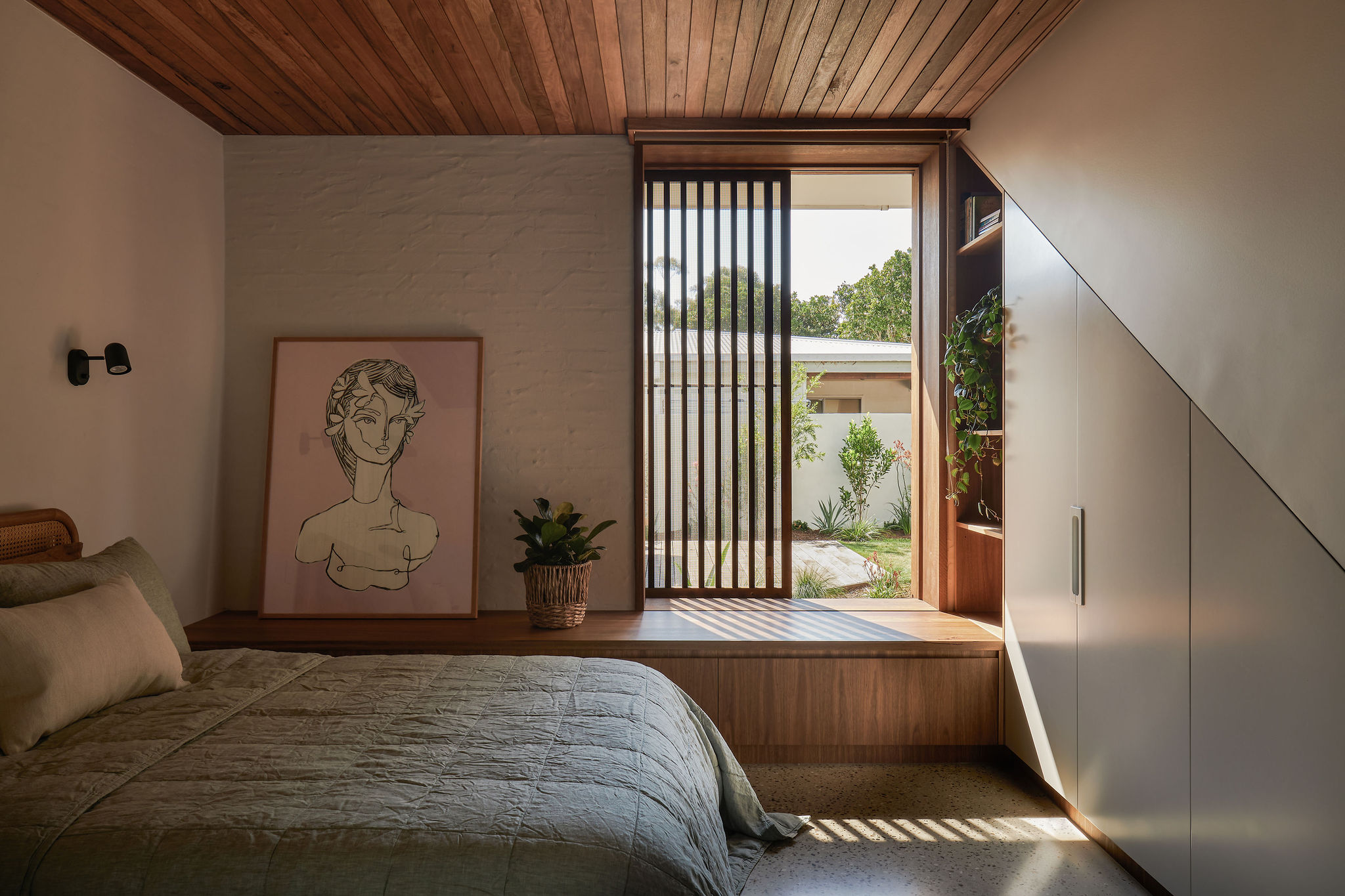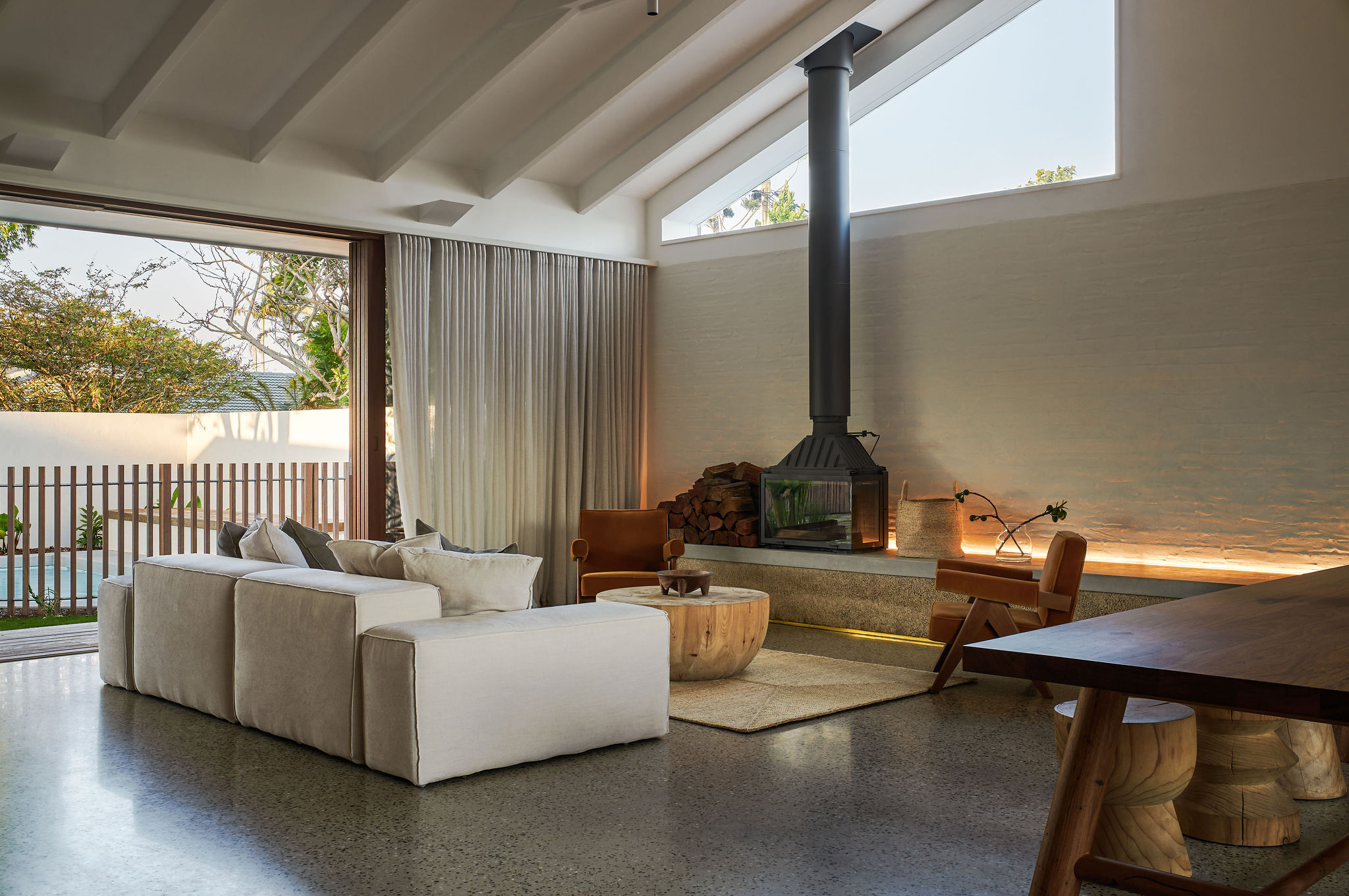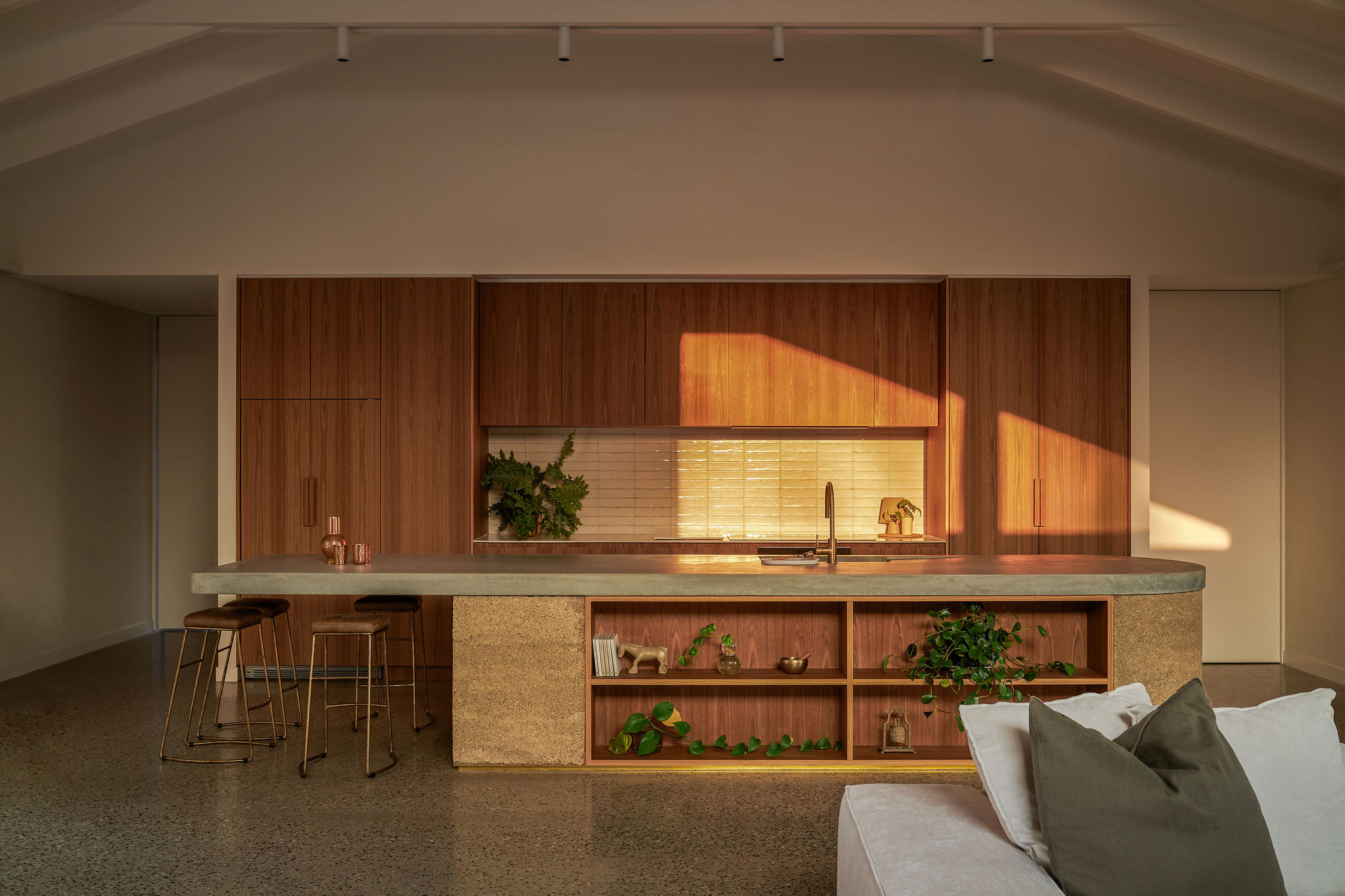How to Choose the Right Builder in Byron Bay
Nicolas Lenders
June 5, 2024
How to Choose the Right Builder in Byron Bay
So you’ve finally decided to build your dream home or perhaps embark on a significant renovation.You’ve spent countless hours poring over Pinterest boards, Houzz galleries, and home design magazines, envisioning the perfect kitchen, the cozy master bedroom, and the sprawling backyard.
But now comes the most critical decision: choosing the right builder.
This is not a task to be taken lightly. The builder you choose can make or break your project.
They can turn your dream home into a reality, or they can cause you endless headaches, sleepless nights, and a hefty dent in your wallet.
In this article, we’ll discuss the essential questions to ask and red flags to watch out for when choosing the right builder.
It will guide you in selecting the perfect partner for your home-building or renovation project and help you avoid potential pitfalls along the way.
Let's get into it.
How to Choose the Right Builder

Above: Our Suffolk Park project. Photo: Andy Macpherson
The process of selecting the right builder is like dating. You don’t want to just jump into a relationship with the first person you meet.
You want to take your time, ask the right questions, and make sure there’s a good fit. After all, you’re about to embark on a significant journey together.
The builder you choose will be your partner in bringing your dream home to life. They will be the ones you’ll be working with for months, often a year or more.
So, you want to make sure you get along, that they understand your vision, and that they have the expertise to make it a reality.
Let's dive into 7 steps that we recommend you take before deciding on a builder.
7 Steps to Choose the Right Builder
Here are 7 essential steps to help you choose the right builder, while they might seem obvious, we are amazed how many people out there choose the wrong builder and regret it.
Ask the Right Questions
Red Flags to Watch Out For
Verify Credentials
Check Past Work
Get Quotes
Get it in Writing
Let’s start by discussing the questions you should ask potential candidates.
1. Ask the Right Questions

Above: Our Suffolk Park project. Photo: Andy Macpherson
When it comes to finding the right builder, the key is to ask the right questions. Don’t be afraid to interview them.
After all, this is a significant investment, and you want to make sure you’re making the right choice.
You should interview multiple builders, and asking the same questions to all of them will give you a good basis for comparison.
Here are some questions you should consider asking:
Question 1: How Many Projects Do You Take On at a Time?
This will give you an idea of their availability and how much attention they can give to your project.
Question 2: Do You Have Experience in This Type of Project?
Building a new home is different from a renovation, and building a townhouse is different from a single-family home.
You want to make sure they have experience in the type of project you’re planning.
Question 3: Are You Licensed and Insured?
This is a must. You don’t want to work with a builder who isn’t properly licensed and insured.
Question 4: What is Your Process?
A good builder will have a clear process from the initial design phase to project completion.
Ask them to walk you through it and explain any specific details they include in their approach.
Question 5: Can I Visit a Current Job Site?
This will give you an idea of their work in progress.
It will help you assess the quality of their work and how they manage their job sites.
Question 6: How Do You Handle Changes to the Original Plan?
Changes are inevitable in a construction project. You want to make sure your builder has a clear process for handling them and can give you an idea of how they will be priced.
Question 7: Can You Provide a Detailed Estimate?
You want to make sure you have a clear understanding of the costs involved and that there won’t be any surprises along the way.
Question 8: How Do You Handle Payments?
A standard payment structure is usually a small down payment and then scheduled payments throughout the project.
Be wary of builders who ask for a large down payment or want to be paid upfront.
Question 9: What Warranties Do You Offer?
A good builder will stand by their work and offer warranties on both the construction and the materials used.
Question 10: Can You Provide References?
Finally, always ask for references. And don’t just take their word for it. Follow up with those references and ask about their experience.
Now that we’ve discussed the essential questions, let’s talk about the red flags you should be watching out for.

Above: Our Suffolk Park project. Photo: Andy Macpherson
2. Red Flags to Watch Out For
When you’re meeting with potential builders, keep an eye out for any red flags. They might seem small at first, but they can often be an indication of larger issues down the road.
Here are some common red flags to watch out for:
Poor Communication: If the builder is difficult to get in touch with or takes a long time to respond to your calls or emails, this can be a sign of things to come.
No Written Contract: A reputable builder will always have a detailed written contract that outlines the scope of the project, the timeline, and the payment schedule.
Unrealistic Timelines: If a builder promises to complete your project in an unusually short amount of time, this can be a sign that they are cutting corners or overbooking themselves.
No Subcontractor Agreements: A good builder will have a team of subcontractors that they work with regularly and have agreements in place. If they don’t, it can lead to delays and potential disputes.
Lack of Experience: While every builder has to start somewhere, you want to work with someone who has a solid track record and experience in the type of project you’re planning.
Refusal to Provide References: If a builder is hesitant to give you references, it could be because they have something to hide. Always ask for references and follow up with them.
Low-Ball Quotes: Be wary of builders who give you a quote that seems too good to be true. It probably is. They may end up adding on a lot of extra costs later.
No Insurance or Licenses: This is a non-negotiable. Always make sure the builder you choose is properly licensed and insured.
No Building Permit: A reputable builder will always obtain the necessary building permits for your project. If they try to talk you out of it, walk away.
Subpar Work on Previous Projects: Always ask to see examples of the builder’s previous work. If the quality isn’t up to par, it’s a sign that your project won’t be either.
Now that we’ve gone over the red flags, let’s discuss how you can verify the credentials of the builders you’re considering.

Above: Our Suffolk Park project. Photo: Andy Macpherson
3. Verify Credentials
When you’re meeting with potential builders, don’t just take their word for it. Verify their credentials.
Here are some things you should verify:
License: Check with your state’s licensing board to ensure the builder is properly licensed.
Insurance: Ask for a copy of their insurance policy, and don’t be afraid to call the insurance company to verify it.
Bond: Some states require builders to be bonded. This provides you with an added layer of protection.
Permits: Ensure the builder has a good track record of obtaining the necessary building permits.
References: Always follow up with the references the builder provides. Ask about their experience and if they would work with the builder again.
Subcontractors: Find out if the builder uses subcontractors and if they have agreements in place with them.
Complaints: Check with the ACCC and your state’s consumer protection agency for any complaints against the builder.
Associations: Some reputable builder associations include the National Association of Home Builders and the Associated General Contractors of America.
Litigation History: You can often find information about a builder’s litigation history by searching online.
Credit References: It’s not uncommon for a builder to request credit references. Just be sure to verify the references they provide.
Now let’s go over the importance of checking the builder’s past work.
4. Check Past Work

Above: Our Suffolk Park project. Photo: Andy Macpherson
One of the best ways to gauge the quality of a builder’s work is to see examples of their previous projects.
You can check out some our past projects here.
Don’t just rely on the photos they show you, take the time to visit some of the homes they’ve built.
Here are some things to look for:
Quality of Workmanship: Pay attention to the details. Are the finishes smooth and even? Are the corners straight? Is the trim installed correctly?
Materials Used: Are the materials used high quality? A good builder will use top-notch materials.
Overall Aesthetic: Do the homes have the overall look and feel you’re going for? It’s essential to work with a builder who has a style that matches yours.
Clean Job Site: Is the job site clean and well-organized? This is a sign of a builder who pays attention to detail and cares about their work.
Satisfied Homeowners: If possible, talk to the homeowners of the projects you visit. Ask them about their experience working with the builder and if they’re happy with the end result.
Completed on Time and Budget: This is essential. You want to work with a builder who can stick to a schedule and a budget.
Willingness to Address Issues: No project is without its hiccups. The key is how the builder addresses and resolves them. A good builder will be proactive in solving problems.
Building Codes and Inspections: Make sure the builder’s previous projects have passed all necessary building inspections and adhere to local building codes.
After-Completion Service: A good builder will stand by their work and offer some level of after-completion service to address any issues that may arise.
By taking the time to visit a builder’s previous projects, you’ll get a real sense of their capabilities and what you can expect from them.
Now let’s discuss the importance of getting detailed quotes.
5. Get Quotes
When it comes to getting quotes from builders, it’s essential to get as detailed a quote as possible. This will give you a clear understanding of the costs involved and will help you avoid any surprises down the road.
Here are some things to consider:
Scope of Work: Make sure the quote outlines the exact scope of the work to be done. It should include everything from the initial design to the finishing touches.
Materials: The quote should specify the materials to be used, including the brand and model numbers if applicable.
Labor: It should clearly state the labor costs, including the builder’s fee and the fees for any subcontractors.
Timeline: The quote should include a detailed timeline for the project, including start and end dates for each phase.
Payment Schedule: Make sure the quote outlines the payment schedule. A standard payment structure is usually a small down payment and then scheduled payments throughout the project.
Change Orders: The quote should explain the process and costs involved in making any changes to the original plan.
Permits and Inspections: Make sure the quote includes the costs of obtaining any necessary building permits and the fees for any required inspections.
Contingency: A good quote will include a contingency fund to cover any unexpected costs that may arise during the project.
Warranty: The quote should specify any warranties on the work and the materials used.
Ongoing Maintenance: If applicable, the quote should outline any ongoing maintenance costs.
Get Multiple Quotes: Don’t be afraid to get quotes from multiple builders. This will give you a good basis for comparison and help ensure you’re getting a fair price.
By getting a detailed quote, you’ll be in a much better position to make an informed decision and have a clear understanding of what to expect from your builder.
Now let’s go over the importance of getting everything in writing.

Above: Lo Scoglio. Photo: Alicia Taylor
6. Get it in Writing
When it comes to working with a builder, getting everything in writing is crucial. A verbal agreement is not enough.
A written contract will protect both you and the builder and will help prevent any misunderstandings or disputes down the road.
Here are some key things that should be included in your contract:
Scope of Work: The contract should clearly outline the exact scope of the work to be done, including the size and layout of the project.
Materials: It should specify the materials to be used, including the brand and model numbers if applicable.
Timeline: The contract should include a detailed timeline for the project, including start and end dates for each phase.
Payment Schedule: Make sure the contract outlines the payment schedule. A standard payment structure is usually a small down payment and then scheduled payments throughout the project.
Change Orders: The contract should explain the process and costs involved in making any changes to the original plan.
Permits and Inspections: Ensure the contract includes the costs of obtaining any necessary building permits and the fees for any required inspections.
Contingency: A good contract will include a contingency fund to cover any unexpected costs that may arise during the project.
Warranty: The contract should specify any warranties on the work and the materials used.
Ongoing Maintenance: If applicable, the contract should outline any ongoing maintenance costs.
Legal Protection: Always have a lawyer review your contract. They can make sure it’s legally sound and protect your interests.
Signature: Both you and the builder should sign the contract, and you should each have a copy for your records.
A well-written contract will help ensure a smooth and successful project.
It will also give you peace of mind, knowing that everything is clear and agreed upon and it will also help you avoid potential disputes and headaches.

Above: Lo Scoglio. Photo: Alicia Taylor
Time to Get Building
We believe that your builder will be your partner, your guide, and your collaborator in bringing your dream home to life.
So, take your time, ask the right questions, and do your research. Trust your instincts, and don’t be afraid to walk away if something doesn’t feel right.
By following the steps we’ve outlined in this article, you’ll be well on your way to finding the perfect builder for your project.
And remember, the right builder will not only build your home but will also build your trust, your confidence, and your dream.
To learn more about how we can help you build your dream home, please get in contact with us here.
Still wondering whether to build in Byron, maybe the below clip can help you solidify your decision.
Frequently Asked Questions
How to choose the right builder for my project?
To choose the right builder, you should ask for recommendations, conduct interviews, and visit their previous work.
This will help you assess their experience, expertise, and reliability.
What questions should I ask when interviewing builders?
You should ask about their experience, past projects, and if they are licensed and insured.
You should also inquire about their subcontractors, the building process, and the timeline for your project.
What are some red flags to watch out for when selecting a builder?
Red flags include unprofessional behavior, a lack of proper licensing and insurance, poor communication, and a refusal to provide references.
Be cautious of builders who request large upfront payments, give low-ball estimates, or have a history of litigation.
How can I verify a builder’s credentials?
To verify a builder’s credentials, you can check with your state’s licensing board, request a copy of their insurance policy, and search for any litigation history online.
You can also contact the Better Business Bureau and your state’s consumer protection agency for any complaints against the builder.
What are some tips for choosing a builder for a custom home?
When choosing a builder for a custom home, look for a builder with experience in custom projects.
Make sure they are familiar with your desired architectural style and can provide the level of customization you want.
Ensure they have a strong network of subcontractors and suppliers and are willing to work closely with you to bring your vision to life.
How can I protect myself when working with a builder?
To protect yourself, always have a written contract that includes a detailed scope of work, a payment schedule, and a timeline for completion.
Make sure the contract also includes warranties on the work and materials.
It’s essential to have a lawyer review the contract to ensure it’s legally sound and protects your interests.




